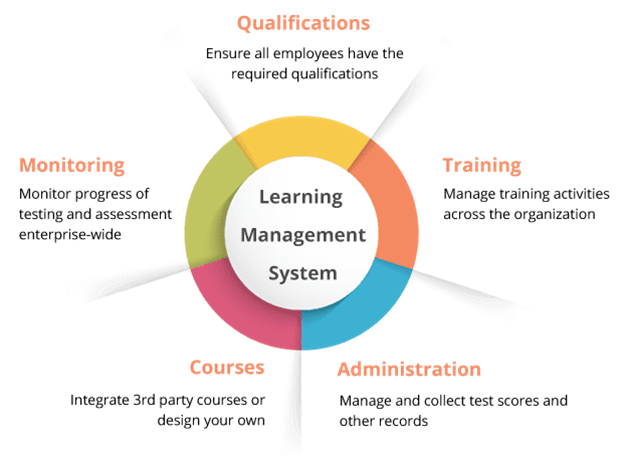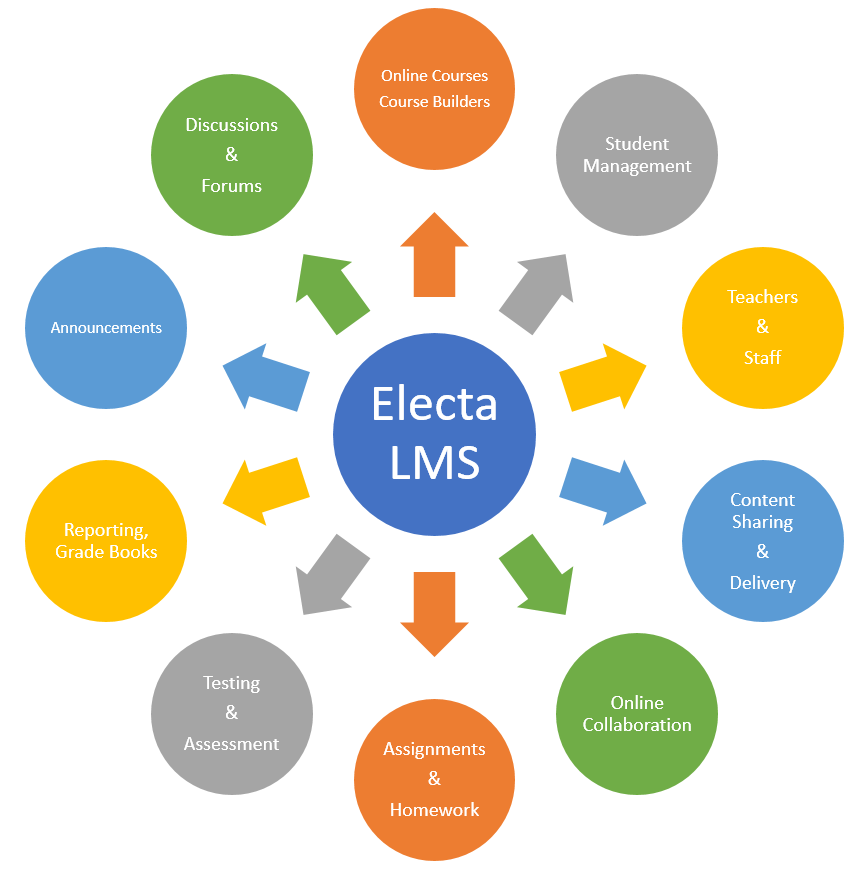Simplify Education With a Leading Discovering Management System
In the ever-evolving landscape of education and learning, the adoption of a leading Discovering Monitoring System (LMS) presents an essential possibility to improve procedures and boost both teaching and discovering experiences. By automating management jobs and providing tailored learning paths, a reliable LMS not just facilitates much better interaction yet also fosters an atmosphere for cooperation and inclusivity (Singapore LMS). Nonetheless, the integration of such a system raises vital concerns concerning its execution and the level of its influence on pupil outcomes. What strategies should institutions consider to optimize these advantages?
Advantages of an Understanding Monitoring System
A Discovering Management System (LMS) offers countless advantages that can significantly boost the academic experience for both teachers and students. Mostly, an LMS helps with structured program management, enabling instructors to handle course products, track learner development, and assess efficiency efficiently. This automation lowers the management concern on instructors, enabling them to concentrate much more on training and student interaction.
Additionally, LMS platforms sustain individualized learning paths, suiting diverse discovering designs and paces. This adaptability fosters a much more comprehensive environment, allowing students to access resources that ideal suit their requirements. The accessibility of an LMS enables trainees to involve with training course content anytime and anywhere, promoting self-directed discovering and suiting various schedules.
One more noteworthy benefit is the improved partnership possibilities an LMS gives. Conversation forums, group projects, and peer assessments motivate interaction among learners, boosting their understanding via shared viewpoints. The data analytics attributes of an LMS enable educators to gain understandings right into student interaction and performance, informing instructional strategies and interventions (LMS Singapore).
Key Features to Look For

Next, durable reporting and analytics capabilities provide beneficial insights into student development and engagement, permitting educators to make data-driven decisions. Integration with various other tools, such as material authoring software and interaction platforms, is additionally crucial for enhancing capability and improving workflows.
Scalability is one more vital attribute, making certain that the LMS can grow together with the organization's needs, accommodating a boosting number of individuals and content. In addition, mobile compatibility is important in today's electronic landscape, allowing students to access instructional materials on different tools.
Finally, solid safety and security actions should remain in area to safeguard sensitive info and keep compliance with academic regulations. By prioritizing these crucial features, organizations can choose an LMS that sustains effective mentor and finding out outcomes, ultimately improving the instructional experience for all stakeholders involved.

Enhancing Pupil Interaction
Pupil interaction is a critical aspect in the success of any curriculum, as it straight influences discovering end results and retention rates. A durable Learning Administration System (LMS) can play a crucial role in improving pupil engagement with numerous innovative functions.

Furthermore, tailored knowing courses allow click for info students to advance at their very own pace, accommodating specific knowing designs and choices. This adaptability not only cultivates a feeling of ownership over their discovering trip but also keeps students spent and encouraged.
In addition, real-time feedback systems make it possible for educators to keep track of trainee efficiency and give timely support, additional improving the finding out experience.
Execution Strategies for Organizations
Successful application of an Understanding Management System (LMS) requires organizations to embrace a calculated strategy that straightens modern technology with educational goals. To achieve this, institutions should begin by conducting an extensive requirements evaluation to determine particular demands, guaranteeing that the LMS will efficiently deal with difficulties faced in teaching and learning.
Following, interesting stakeholders-- professors, managers, and trainees-- is important for fostering a culture of collaboration and assistance. Educating sessions ought to be organized to equip customers with the essential abilities to take advantage of the LMS effectively. In addition, establishments need to assign sufficient sources, consisting of time and budget, to facilitate a smooth change and continuous maintenance.
Additionally, creating a phased rollout strategy can assist mitigate possible interruptions. Institutions can begin with pilot programs to evaluate capability and collect feedback prior to full-scale execution. Constant assessment and adjustment of the LMS based on customer experience will further improve its effectiveness.
Last but not least, it is vital to communicate a clear vision of exactly how the LMS supports instructional practices, consequently encouraging buy-in from all events included. By following these strategies, organizations can make certain a successful LMS implementation that eventually boosts the academic experience.
Determining Success and End Results
Measuring the success and results of an Understanding Management System (LMS) is vital for establishing its impact on teaching and discovering. This procedure entails the collection and evaluation of quantitative and qualitative information to assess the efficiency of the LMS in accomplishing educational goals. Trick efficiency indications (KPIs) such as student engagement rates, program completion rates, and evaluation scores supply critical insights into user communication and learning outcomes.
Furthermore, surveys and comments systems can catch the experiences of both educators and students, offering valuable perspectives on usability, web content importance, and total contentment. By triangulating these information resources, organizations can identify strengths and locations site web for enhancement within the LMS framework.
Additionally, aligning LMS metrics with institutional purposes boosts responsibility and supports strategic preparation (LMS Singapore). Tracking retention prices and post-course performance can inform educational program modifications and resource appropriation. Eventually, a systematic approach to gauging success and results not just makes sure continuous renovation of the LMS however also cultivates a culture of data-driven decision-making. This commitment to evaluation empowers universities to boost their mentor Canvas Singapore methodologies and maximize learner experiences properly.
Verdict
The combination of a leading Understanding Management System (LMS) dramatically enhances academic experiences by automating management tasks and offering personalized discovering opportunities. By promoting collaboration and inclusivity, a reliable LMS not just boosts student engagement however additionally drives far better learning results. Organizations have to focus on the selection and implementation of an LMS that lines up with their objectives, making certain durable analytics and interactive web content are utilized to measure success and continuously enhance the educational setting.
A Discovering Administration System (LMS) supplies countless benefits that can significantly enhance the educational experience for both educators and learners.Additionally, LMS systems sustain tailored learning courses, suiting varied understanding designs and speeds.Determining the success and results of a Knowing Administration System (LMS) is vital for identifying its impact on teaching and understanding.The assimilation of a leading Understanding Administration System (LMS) substantially enhances educational experiences by automating management jobs and supplying customized knowing opportunities. By cultivating partnership and inclusivity, an efficient LMS not only boosts trainee engagement yet likewise drives much better learning end results.
 Jonathan Lipnicki Then & Now!
Jonathan Lipnicki Then & Now! Michelle Pfeiffer Then & Now!
Michelle Pfeiffer Then & Now! Kenan Thompson Then & Now!
Kenan Thompson Then & Now! Keshia Knight Pulliam Then & Now!
Keshia Knight Pulliam Then & Now! Sam Woods Then & Now!
Sam Woods Then & Now!